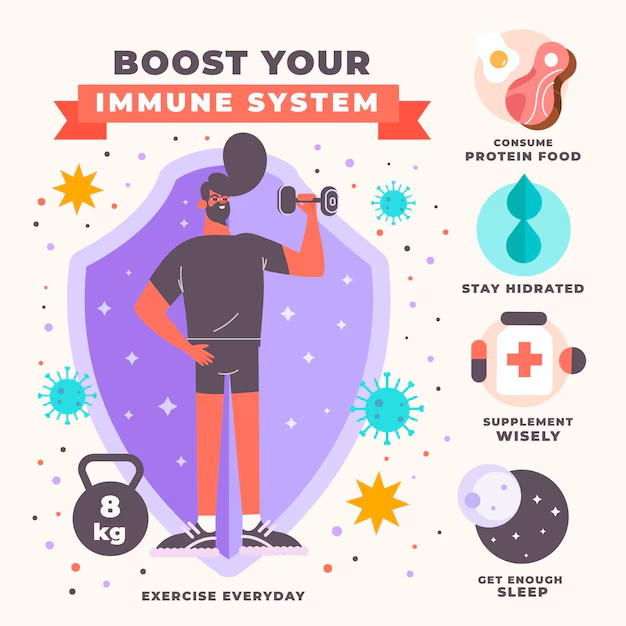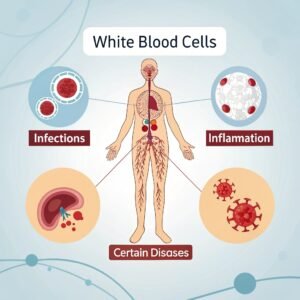The Immune System: Our Body’s Defense
The immune system is an extraordinary network that shields our bodies from harmful invaders such as bacteria, viruses, and other pathogens. It works tirelessly, often without us even realizing it, to protect our health. In this blog, we’ll delve into the critical components of the immune system and how it functions, with particular focus on the innate and adaptive immunity systems. Understanding The Immune System: Our Body’s Defense is essential to maintaining optimal health.
Innate Immunity: The First Line of Defense
Innate immunity is the body’s immediate and nonspecific response to foreign pathogens. It is the first and fastest defense mechanism, designed to protect us from a wide range of infectious agents. Some key features of the innate immune system include:
- Physical Barriers: Our skin and mucous membranes act as physical barricades that prevent pathogens from entering our body.
- Phagocytes: These white blood cells consume and destroy foreign invaders, such as bacteria and viruses.
- Inflammation: In response to infection, immune cells are recruited to the infection site. This process may lead to inflammation, helping to clear away harmful pathogens.
This initial line of defense is crucial in the early stages of infection, but when it is overwhelmed, The Immune System: Our Body’s Defense shifts to more specific strategies.
Adaptive Immunity: The Targeted Defense
When the innate immune system fails to eliminate pathogens, the adaptive immune system takes over. This system is more specialized and provides a targeted response to specific threats. Key components of adaptive immunity include:
- B Cells: These cells produce antibodies that bind to pathogens, neutralizing them and preventing them from harming the body.
- T Cells: T cells either destroy infected or cancerous cells directly or help regulate other immune responses.
Adaptive immunity also leads to immunological memory, allowing the body to recognize and respond more quickly if exposed to the same pathogen again. This principle is the foundation for vaccines, which train the immune system to respond swiftly and efficiently, preventing future infections.
Balance and Immune Health: “The Immune System: Our Body’s Defense”
Maintaining the health of our immune system is crucial for overall well-being. A balanced diet, regular exercise, adequate sleep, and stress management are all vital in supporting immune function. However, it’s important to understand that while an overactive immune system can lead to autoimmune diseases or allergic reactions, a weakened immune system leaves us vulnerable to infections.
Conclusion: The Immune System: Our Body’s Defense
In conclusion, The Immune System: Our Body’s Defense is an incredibly powerful and complex system that works tirelessly to protect us. Its ability to identify, respond to, and remember pathogens is key to defending against illness. By understanding how the immune system works and how to support its function, we can ensure that this defense mechanism remains strong, keeping us healthy and safe from disease.










